 The Secret Financial Network Behind "Wizard" George Soros
The Secret Financial Network Behind "Wizard" George Sorosby William Engdahl
The dossier that follows is based upon a report released on Oct. 1 by EIR's bureau in Wiesbaden, Germany, titled "A Profile of Mega-Speculator George Soros" Research was contributed by Mark Burdman, Elisabeth Hellenbroich, Paolo Raimondi, and Scott Thompson.
............................................................................
Time magazine has characterized financier George Soros as a "modern-day Robin Hood," who robs from the rich to give to the poor countries of eastern Europe and Russia. It claimed that Soros makes huge financial gains by speculating against western central banks, in order to use his profits to help the emerging post-communist economies of eastern Europe and former Soviet Union, to assist them to create what he calls an "Open Society." The Time statement is entirely accurate in the first part, and entirely inaccurate in the second. He robs from rich western countries, and uses his profits to rob even more savagely from the East, under the cloak of "philanthropy." His goal is to loot wherever and however he can. Soros has been called the master manipulator of "hit-and-run capitalism."
As we shall see, what Soros means by "open," is a society that allows him and his financial predator friends to loot the resources and precious assets of former Warsaw Pact economies. By bringing people like Jeffrey Sachs or Sweden's Anders Aslund and their economic shock therapy into these economies, Soros lays the groundwork for buying up the assets of whole regions of the world at dirt-cheap prices.
The man who broke the Bank of England?
An examination of Soros's secretive financial network is vital to understand the true dimension of the "Soros problem" in eastern Europe and other nations.
Following the crisis of the European Exchange Rate Mechanism of September 1992, when the Bank of England was forced to abandon efforts to stabilize the pound sterling, a little-known financial figure emerged from the shadows, to boast that he had personally made over $1 billion in speculation against the British pound. The speculator was the Hungarian-born George Soros, who spent the war in Hungary under false papers working for the Nazi government, identifying and expropriating the property of wealthy fellow Jews. Soros left Hungary after the war, and established American citizenship after some years in London. Today, Soros is based in New York, but that tells little, if anything, of who and what he is.
Following his impressive claims to possession of a "Midas touch," Soros has let his name be publicly used in a blatant attempt to influence world financial markets---an out-of-character act for most financial investors, who prefer to take advantage of situations not yet discovered by rivals, and keep them secret. Soros the financier is as much a political animal, as a financial speculator.
Soros proclaimed in March 1993, with great publicity, that the price of gold was about to rise sharply; he said that he had just gotten "inside information" that China was about to buy huge sums of gold for its booming economy. Soros was able to trigger a rush into buying gold, which caused prices to rise more than 20% over four months, to the highest level since 1991. Typically for Soros, once the fools rushed in to push prices higher, Soros and his friend Sir James Goldsmith secretly began selling their gold at a huge profit.
Then, in early June 1993, Soros proclaimed his intent to force a sell-off in German government bonds in favor of the French, in an open letter to London Times Financial Editor Anatole Kaletsky, in which Soros proclaimed, "Down with the D-Mark!" Soros has at various times attacked the currencies of Thailand, Malaysia, Indonesia, and Mexico, coming into newly opened financial markets which have little experience with foreign investors, let alone ones with large funds like Soros. Soros begins buying stocks or bonds in the local market, leading others to naively suppose that he knows something they do not. As with gold, when the smaller investors begin to follow Soros, driving prices of stocks or whatever higher, Soros begins to sell to the eager new buyers, cashing in his 40% or 100% profits, then exiting the market, and often, the entire country, to seek another target for his speculation. This technique gave rise to the term "hit and run." What Soros always leaves behind, is a collapsed local market and financial ruin of national investors.
The secret of the Quantum Fund NV
Soros is the visible side of a vast and nasty secret network of private financial interests, controlled by the leading aristocratic and royal families of Europe, centered in the British House of Windsor. This network, called by its members the Club of Isles, was built upon the wreckage of the British Empire after World War II.
Rather than use the powers of the state to achieve their geopolitical goals, a secret cross-linked holding of private financial interests, tied to the old aristocratic oligarchy of western Europe, was developed. It was in many ways modeled on the 17th-century British and Dutch East India Companies. The heart of this Club of the Isles is the financial center of the old British Empire, the City of London. Soros is one of what in medieval days were called Hofjuden, the "Court Jews," who were deployed by the aristocratic families.
The most important of such "Jews who are not Jews," are the Rothschilds, who launched Soros's career. They are members of the Club of the Isles and retainers of the British royal family. This has been true since Amschel Rothschild sold the British Hessian troops to fight against George Washington during the American Revolution.
Soros is American only in his passport. He is a global financial operator, who happens to be in New York, simply because "that's where the money is," as the bank robber Willy Sutton once quipped, when asked why he always robbed banks. Soros speculates in world financial markets through his offshore company, Quantum Fund NV, a private investment fund, or "hedge fund." His hedge fund reportedly manages some $11-14 billion of funds on behalf of its clients, or investors---one of the most prominent of whom is, according to Soros, Britain's Queen Elizabeth, the wealthiest person in Europe.
The Quantum Fund is registered in the tax haven of the Netherlands Antilles, in the Caribbean. This is to avoid paying taxes, as well as to hide the true nature of his investors and what he does with their money.
In order to avoid U.S. government supervision of his financial activities, something normal U.S.-based investment funds must by law agree to in order to operate, Soros moved his legal headquarters to the Caribbean tax haven of Curacao. The Netherlands Antilles has repeatedly been cited by the Task Force on Money Laundering of the Organization for Economic Cooperation and Development (OECD) as one of the world's most important centers for laundering illegal proceeds of the Latin American cocaine and other drug traffic. It is a possession of the Netherlands.
Soros has taken care that the none of the 99 individual investors who participate in his various funds is an American national. By U.S. securities law, a hedge fund is limited to no more than 99 highly wealthy individuals, so-called "sophisticated investors." By structuring his investment company as an offshore hedge fund, Soros avoids public scrutiny.
Soros himself is not even on the board of Quantum Fund. Instead, for legal reasons, he serves the Quantum Fund as official "investment adviser," through another company, Soros Fund Management, of New York City. If any demand were to be made of Soros to reveal the details of Quantum Fund's operations, he is able to claim he is "merely its investment adviser." Any competent police investigator looking at the complex legal structure of Soros's businesses would conclude that there is prima facie evidence of either vast money laundering of illicit funds, or massive illegal tax evasion. Both may be true.
To make it impossible for U.S. tax authorities or other officials to look into the financial dealings of his web of businesses, the board of directors of Quantum Fund NV also includes no American citizens. His directors are Swiss, Italian, and British financiers.
George Soros is part of a tightly knit financial mafia---"mafia," in the sense of a closed masonic-like fraternity of families pursuing common aims. Anyone who dares to criticize Soros or any of his associates, is immediately hit with the charge of being "anti-Semitic"----a criticism which often silences or intimidates genuine critics of Soros's unscrupulous operations. The Anti-Defamation League of B'nai B'rith considers it a top priority to "protect" Soros from the charges of "anti-Semites" in Hungary and elsewhere in Central Europe, according to ADL National Director Abraham Foxman. The ADL's record of service to the British oligarchy has been amply documented by EIR (e.g. The Ugly Truth About the Anti-Defamation League [Washington, D.C., Executive Intelligence Review: 1992]).
According to knowledgeable U.S. and European investigators, Soros's circle includes indicted metals and commodity speculator and fugitive Marc Rich of Zug, Switzerland and Tel Aviv; secretive Israeli arms and commodity dealer Shaul Eisenberg, and "Dirty Rafi" Eytan, both linked to the financial side of the Israeli Mossad; and, the family of Jacob Lord Rothschild.
Understandably, Soros and the Rothschild interests prefer to keep their connection hidden far from public view, so as to obscure the well-connected friends Soros enjoys in the City of London, the British Foreign Office, Israel, and the U.S. financial establishment. The myth, therefore, has been created, that Soros is a lone financial investment "genius" who, through his sheer personal brilliance in detecting shifts in markets, has become one of the world's most successful speculators. According to those who have done business with him, Soros never makes a major investment move without sensitive insider information.
On the board of directors of Soros's Quantum Fund N.V. is Richard Katz, a Rothschild man who is also on the board of the London N.M. Rothschild and Sons merchant bank, and the head of Rothschild Italia S.p.A. of Milan. Another Rothschild family link to Soros's Quantum Fund is Quantum board member Nils O. Taube, the partner of the London investment group St. James Place Capital, whose major partner is Lord Rothschild. London Times columnist Lord William Rees-Mogg is also on the board of Rothschild's St. James Place Capital.
A frequent business partner of Soros in various speculative deals, including in the 1993 gold manipulation, although not on the Quantum Fund directly, is the Anglo-French speculator Sir James Goldsmith, a cousin of the Rothschild family.
>From the very first days when Soros created his own investment fund in 1969, he owed his success to his relation to the Rothschild family banking network. Soros worked in New York in the 1960s for a small private bank close to the Rothschilds, Arnhold & S. Bleichroeder, Inc., a banking family which represented Rothschild interests in Germany during Bismarck's time. To this day, A. & S. Bleichroeder, Inc. remains the Principal Custodian, along with Citibank, of funds of Soros's Quantum Fund. George C. Karlweiss, of Edmond de Rothschild's Switzerland-based Banque Privee SA in Lugano, as well as of the scandal-tainted Rothschild Bank AG of Zurich, gave Soros financial backing. Karlweiss provided some of the vital initial capital and investors for Soros's Quantum Fund.
Union Banque Privee and the 'Swiss connection'
Another member of the board of Soros's Quantum Fund is the head of one of the most controversial Swiss private banks, Edgar de Picciotto, who has been called "one of the cleverest bankers in Geneva"---and is one of the most scandal-tainted. De Picciotto, from an old Portuguese Jewish trading family, who was born in Lebanon, is head of the Geneva private bank CBI-TDB Union Bancaire Privee, a major player in the gold and offshore hedge funds business. Hedge funds have been identified by international police agencies as the fastest-growing outlet for illegal money laundering today.
De Picciotto is a longtime friend and business associate of banker Edmond Safra, also born in Lebanon, whose family came from Aleppo, Syria, and who now controls the Republic Bank of New York. Republic Bank has been identified in U.S. investigations into Russian organized crime, as the bank involved in transferring billions of U.S. Federal Reserve notes from New York to organized crime-controlled Moscow banks, on behalf of Russian organized crime figures. Safra is under investigation by U.S. and Swiss authorities for laundering Turkish and Columbian drug money. In 1990, Safra's Trade Development Bank (TDB) of Geneva was merged with de Picciotto's CBI to create the CBI-TDB Union Banque Privee. The details of the merger are shrouded in secrecy to this day. As part of the deal, de Picciotto became a board member of American Express Bank (Switzerland) SA of Geneva, and two American Express Bank of New York executives sit on the board of de Picciotto's Union Banque Privee. Safra had sold his Trade Development Bank to American Express, Inc. in the 1980s. Henry Kissinger sits on the board of American Express, Inc., which has repeatedly been implicated in international money-laundering scandals.
De Picciotto's start as a Geneva banker came from Nicholas Baring of the London Barings Bank, who tapped de Picciotto to run the bank's secret Swiss bank business. Barings has for centuries been private banker to the British royal family, and since the bank's collapse in March 1995, has been overhauled by the Dutch ING Bank, which is reported to be a major money-laundering institution.
De Picciotto is also a longtime business partner of Venetian businessman Carlo De Benedetti, who recently was forced to resign as head of Olivetti Corp. Both persons sit on the board of the Societe Financiere de Geneve investment holding company in Geneva. De Benedetti is under investigation in Italy for suspicion of triggering the collapse of Italy's Banco Ambrosiano in the early 1980s.The head of that bank, Roberto Calvi, was later found hanging from the London Blackfriar's Bridge, in what police believe was a masonic ritual murder.
De Picciotto and his Union Banque Privee have been implicated in numerous drug and illegal money-laundering operations. In November 1994, U.S. federal agents arrested a senior official of de Picciotto's Geneva bank, Jean-Jacques Handali, along with two other UBP officials, on charges of leading a multimillion-dollar drug-money-laundering ring. According to the U.S. Attorney's Office in Miami, Handali and Union Banque Privee were the "Swiss connection" in an international drug-money-laundering ring tied to Colombian and Turkish cocaine and heroin organizations. A close business and political associate of de Picciotto is a mysterious arm dealer, Helmut Raiser, who is linked in business dealings with reputed Russian organized crime kingpin Grigori Luchansky, who controls the Russian and Swiss holding company Nordex Group.
Another director of Soros's Quantum Fund is Isodoro Albertini, owner of the Milan stock brokerage firm Albertini and Co. Beat Notz of the Geneva Banque Worms is another private banker on the board of Soros's Quantum Fund, as is Alberto Foglia, who is chief of the Lugano, Switzerland Banca del Ceresio. Lugano, just across the Swiss border from Milan, is notorious as the financial secret bank haven for Italian organized crime families, including the heroin mafia behind the 1980s "Pizza Connection" case. The Banca del Ceresio has been one of the secret Swiss banks identified in the recent Italian political corruption scandals as the repository of bribe funds of several Italian politicians now in prison.
The sponsorship of the Rothschilds
Soros's relation to the Rothschild finance circle represents no ordinary or casual banking connection. It goes a long way to explain the extraordinary success of a mere private speculator, and Soros's uncanny ability to "gamble right" so many times in such high-risk markets. Soros has access to the "insider track" in some of the most important government and private channels in the world.
Since World War II, the Rothschild family, at the heart of the financial apparatus of the Club of the Isles, has gone to great lengths to create a public myth about its own insignificance. The family has spent significant sums cultivating a public image as a family of wealthy, but quiet, "gentlemen," some of whom prefer to cultivate fine French wines, some of whom are devoted to charity.
Since British Foreign Secretary Arthur Balfour wrote his famous November 1917 letter to Lord Rothschild, expressing official British government backing for establishment of a Palestinian national home for the Jewish people, the Rothschilds were intimately involved in the creation of Israel. But behind their public facade of a family donating money for projects such as planting trees in the deserts of Israel, N.M. Rothschild of London is at the center of various intelligence operations, and more than once has been linked to the more unsavory elements of international organized crime. The family prefers to keep such links at arm's length, and away from its London headquarters, via its lesser-known outposts such as their Zurich Rothschild Bank AG and Rothschild Italia of Milan, the bank of Soros partner Richard Katz.
N.M. Rothschild is considered by City of London sources to be one of the most influential parts of the British intelligence establishment, tied to the Thatcher "free market" wing of the Tory Party. Rothschild and Sons made huge sums managing for Thatcher the privatization of billions of dollars of British state industry holdings during the 1980s, and today, for John Major's government. Rothschilds is also at the very heart of the world gold trade, being the bank at which twice daily the London Gold Fix is struck by a group of the five most influential gold trade banks. Gold constitutes a major part of the economy of drug dealings globally.
N.M. Rothschild and Sons is also implicated in some of the filthiest drugs-for-weapons secret intelligence operations. Because it is connected to the highest levels of the British intelligence establishment, Rothschilds managed to evade any prominent mention of its complicity in one of the more sordid black covert intelligence networks, that of the Bank of Credit and Commerce International (BCCI). Rothschilds was at the center of the international web of money-laundering banks used during the 1970s and 1980s by Britain's MI-6 and the networks of Col. Oliver North and George Bush, to finance such projects as the Nicaraguan Contras.
On June 8, 1993 the chairman of the U.S. House of Representatives' Committee on Banking, Rep. Henry Gonzalez (D-Tex.), made a speech charging that the U.S. government, under the previous Bush and Reagan administrations, had systematically refused to prosecute the BCCI, and that the Department of Justice had repeatedly refused to cooperate with Congressional investigations of both the BCCI scandal and what Gonzalez claims is the closely related scandal of the Atlanta, Georgia Banca Nationale del Lavoro, which was alleged to have secured billions in loans from the Bush administration to Saddam Hussein, just prior to the Gulf War of 1990-91.
Gonzalez charged that the Bush administration had "a Justice Department that I say, and I repeat, has been the most corrupt, most unbelievably corrupt justice system that I have seen in the 32 years I have been in the Congress."
The BCCI violated countless laws, including laundering drug money, financing illegal arms traffic, and falsifying bank records. In July 1991, New York District Attorney Robert Morgenthau announced a grand jury indictment against BCCI, charging it with having committed "the largest bank fraud in world financial history. BCCI operated as a corrupt criminal organization throughout its entire 19-year history."
The BCCI had links directly into the Bush White House. Saudi Sheik Kamal Adham, a BCCI director and former head of Saudi Arabian intelligence when George Bush was head of the CIA, was one of the BCCI shareholders indicted in the United States. Days after his indictment, former top Bush White House aide Edward Rogers went to Saudi Arabia as a private citizen to sign a contract to represent Sheikh Adham in the United States.
But, what has never been identified in a single major Western press investigation, was that the Rothschild group was at the heart of the vast illegal web of BCCI. The key figure was Dr. Alfred Hartmann, the managing director of the BCCI Swiss subsidiary, Banque de Commerce et de Placement SA; at the same time, he ran the Zurich Rothschild Bank AG, and sat in London as a member of the board of N.M. Rothschild and Sons, Hartmann was also a business partner of Helmut Raiser, friend of de Picciotto, and linked to Nordex.
Hartmann was also chairman of the Swiss affiliate of the Italian BNL bank, which was implicated in the Bush administration illegal transfers to Iraq prior to the 1990 Iraqi invasion of Kuwait. The Atlanta branch of BNL, with the knowledge of George Bush when he was vice president, conduited funds to Helmut Raiser's Zug, Switzerland company, Consen, for development of the CondorII missile program by Iraq, Egypt, and Argentina, during the Iran-Iraq War. Hartmann was vice-chairman of another secretive private Geneva bank, the Bank of NY-Inter-Maritime Bank, a bank whose chairman, Bruce Rappaport, was one of the illegal financial conduits for Col. Oliver North's Contra drugs-for-weapons network during the late 1980. North also used the BCCI as one of his preferred banks to hide his illegal funds.
Rich, Reichmann, and Soros's Israeli links
According to reports of former U.S. State Department intelligence officers familiar with the Soros case, Soros's Quantum Fund amassed a war chest of well over $10 billion, with the help of a powerful group of "silent" investors who let Soros deploy the capital to demolish European monetary stability in September 1992.
Among Soros's silent investors, these sources say, are the fugitive metals and oil trader Marc Rich, based in Zug, Switzerland; and Shaul Eisenberg, a decades-long member of Israeli Mossad intelligence, who functions as a major arms merchant throughout Asia and the Near East. Eisenberg was recently banned from doing business in Uzbekistan, where he had been accused by the government of massive fraud and corruption. A third Soros partner is Israel's "Dirty Rafi" Eytan, who served in London previously as Mossad liaison to British intelligence.
Rich was one of the most active western traders in oil, aluminum, and other commodities in the Soviet Union and Russia between 1989 and 1993. This, not coincidentally, is just the period when Grigori Luchansky's Nordex Group became a multibillion-dollar company selling Russian oil, aluminum, and other commodities.
Canadian real estate entrepreneur Paul Reichmann, formerly of Olympia and York notoriety, a Hungarian-born Jew like Soros, is a business partner in Soros's Quantum Realty, a $525-million real estate investment fund.
The Reichmann tie links Soros as well with Henry Kissinger and former Tory Foreign Minister Lord Carrington (who is also a member of Kissinger Associates, Inc. of New York). Reichmann sits with both Kissinger and Carrington on the board of the influential British-Canadian publishing group, Hollinger, Inc. Hollinger owns a large number of newspapers in Canada and the United States, the London Daily Telegraph, and the largest English-language daily in Israel, the Jerusalem Post. Hollinger has been attacking President Clinton and the Middle East peace process ever since Clinton's election in November 1992.
Soros and geopolitics
Soros is little more than one of several significant vehicles for economic and financial warfare by the Club of the Isles faction. Because his affiliations to these interests have not previously been spotlighted, he serves extremely useful functions for the oligarchy, as in 1992 and 1993, when he launched his attack on the European Rate Mechanism.
Although Soros's speculation played a role in finally taking the British pound out of the ERM currency group entirely, it would be a mistake to view that action as "anti-British." Soros went for the first time to London, where he studied under Karl Popper and Friedrich von Hayek at the London School of Economics.
Soros's business ties to Sir James Goldsmith and Lord Rothschild place him in the inner circles of the Thatcher wing of the British establishment. By helping the "anti-Europe" Thatcherites pull Britain out of the ERM in September 1992 (and making more than $1 billion in the process at British taxpayer expense), Soros helped the long-term goal of the Thatcherites in weakening continental Europe's economic stability. Since 1904 , it has been British geopolitical strategy to prevent by all means any successful economic linkage between western continental European economies, especially that of Germany, with Russia and the countries of eastern Europe.
Soros's personal outlook is consonant with that of the Thatcher wing of the Tory Party, those who three years ago launched the "Germany, the Fourth Reich" hate campaign against unified Germany, comparing Chancellor Helmut Kohl with Adolf Hitler. Soros is personally extremely anti-German. In his 191 autobiography, Underwriting Democracy, Soros warned that a reunited Germany would "upset the balance of Europe .... It is easy to see how the interwar scenario could be replayed. A united Germany becomes the strongest economic power and develops Eastern Europe as its Lebensraum ... a potent witches' brew." Soros's recent public attacks on the German economy and the deutsche mark are fundamentally motivated by this geopolitical view.
Soros is quite close to the circles of George Bush in the U.S. intelligence community and finance. His principal bank custodian, and reputed major lender in the 1992 assault on Europe's ERM, is Citicorp NA, the nation's largest bank. Citicorp is more than a lending institution; it is a core part of the American liberal establishment. In 1989, as it became clear that German unification was a real possibility, a senior official at Citicorp, a former adviser to Michael Dukakis's Presidential campaign, told a European business associate that "German unity will be a disaster for our interests; we must take measures to ensure a sharp D-Mark collapse on the order of 30%, so that she will not have the capability to reconstruct East Germany into the economic engine of a new Europe."
While Soros was calling on world investors to pull down the deutsche mark in 1993, he had been making a strong play in the French media, since late 1992, to portray himself as a "friend of French interests." Soros is reported to be close to senior figures of the French establishment, the Treasury, and in particular, Bank of France head Jean-Claude Trichet. In effect, Soros is echoing the old Entente Cordiale alliance against Germany, which helped precipitate World War 1.
Soros admits that he survived in Nazi Hungary during the war, as a Jew, by adopting what he calls a double personality. "I have lived with a double personality practically all my life," Soros recently stated. "It started at age fourteen in Hungary, when I assumed a false identity in order to escape persecution as a Jew." Soros admitted in a radio interview that his father gave him Nazi credentials in Hungary during the war, and he looted wealthy Jewish estates. Further research showed that this operation was probably run by the SS.
Soros did not leave the country until two years after the war. Though he and his friends in the media are quick to attack any policy opponent of Soros, especially in eastern Europe, as being "anti-Semitic," Soros's Jewish identity apparently has only utilitarian value for him, rather than providing moral foundations. In short, the young Soros was a cynical, ambitious person, the ideal recruit for the British postwar intelligence network.
Soros savages Eastern Europe
Soros has established no fewer than 19 "charitable" foundations across eastern Europe and the former Soviet Union. He has sponsored "peace" concerts in former Yugoslavia with such performers as Joan Baez. He is helping send young east Europeans to Oxford University. A model citizen, is the image he broadcasts.
The reality is something else. Soros has been personally responsible for introducing shock therapy into the emerging economies of eastern Europe since 1989. He has deliberately fostered on fragile new governments in the east the most draconian economic madness, policies which have allowed Soros and his financial predator friends, such as Marc Rich and Shaul Eisenberg, to loot the resources of large parts of eastern Europe at dirt-cheap prices. Here are illustrative case histories of Soros's eastern "charity":
Poland: In late 1989, Soros organized a secret meeting between the "reform" communist government of Prime Minister Mieczyslaw Rakowski and the leaders of the then-illegal Solidarnosc trade union organization. According to well-informed Polish sources, at that 1989 meeting, Soros unveiled his "plan" for Poland: The communists must let Solidarnosc take over the government, so as to gain the confidence of the population. Then, said Soros, the state must act to bankrupt its own industrial and agricultural enterprises, using astronomical interest rates, withholding state credits, and burdening firms with unpayable debt. Once thie were done, Soros promised that he would encourage his wealthy international business friends to come into Poland, as prospective buyers of the privatized state enterprises. A recent example of this privatization plan is the case of the large steel facility Huta Warsawa. According to steel experts, this modern complex would cost $3-4 billion for a western company to build new. Several months ago, the Polish government agreed to assume the debts of Huta Warsawa, and to sell the debt-free enterprise to a Milan company, Lucchini, for $30 million!.
Soros recruited his friend, Harvard University economist Jeffery Sachs, who had previously advised the Bolivian government in economic policy, leading to the takeover of that nation's economy by the cocaine trade. To further his plan in Poland, Soros set up one of his numerous foundations, the Stefan Batory Foundation, the official sponsor of Sach's work in Poland in 1989-90.
Soros boasts, "I established close personal contact with Walesa's chief adviser, Bronislaw Geremek. I was also received by [President Gen Wojciech] Jaruzelski, the head of State, to obtain his blessing for my foundation." He worked closely with the eminence gris of Polish shock therapy, Witold Trzeciakowski, a shadow adviser to Finance Minister Leszek Balcerowicz. Soros also cultivated relations with Balcerowicz, the man who would first impose Sach's shock therapy on Poland. Soros says when Walesa was elected President, that "largely because of western pressure, Walesa retained Balcerowicz as minister." Balcerowicz imposed a freeze on wages while industry was to be bankrupted by a cutoff of state credits. Industrial output fell by more than 30% over two years.
Soros admits he knew in advance that his shock therapy would cause huge unemployment, closing of factories, and social unrest. For this reason, he insisted that Solidarnosc be brought into the government, to help deal with the unrest. Through the Batory Foundation, Soros coopted key media opinion makers such as Adam Michnik, and through cooperation with the U.S. Embassy in Warsaw, imposed a media censorship favorable to Soros's shock therapy, and hostile to all critics.
Russia and the Community of Independent States (CIS): Soros headed a delegation to Russia, where he had worked together with Raisa Gorbachova since the late 1980s, to establish the Cultural Initiative Foundation. As with his other "charitable foundations," this was a tax-free vehicle for Soros and his influential Western friends to enter the top policymaking levels of the country, and for tiny sums of scarce hard currency, but up important political and intellectual figures. After a false start under Mikhail Gorbachov in 1988-91, Soros shifted to the new Yeltsin circle. It was Soros who introduced Jeffery Sachs and shock therapy into Russia, in late 1991. Soros describes his effort: "I started mobilizing a group of economists to take to the Soviet Union (July 1990). Professor Jeffery Sachs, with whom I had worked in Poland, was ready and eager to participate. He suggested a number of other participants: Romano Prodi from Italy; David Finch, a retired official from the IMF [International Monetary Fund]. I wanted to include Stanley Fischer and Jacob Frenkel, heads of research of the World Bank and IMF, respectively; Larry Summers from Harvard and Michael Bruno of the Central Bank of Israel."
Since Jan. 2, 1992, shock therapy has introduced chaos and hyperinflation into Russia. Irreplaceable groups from advanced scientific research institutes have fled in pursuit of jobs in the West. Yegor Gaidar and the Yeltsin government imposed draconian cuts in state spending to industry and agriculture, even though the entire economy was state-owned. A goal of a zero deficit budget within three months was announced. Credit to industry was ended, and enterprises piled up astronomical debts, as inflation of the ruble went out of control.
The friends of Soros lost no time in capitalizing on this situation. Marc Rich began buying Russian aluminum at absurdly cheap prices, with his hard currency. Rich then dumped the aluminum onto western industrial markets last year, causing a 30% collapse in the price of the metal, as western industry had no way to compete. There was such an outflow of aluminum last year from Russia, that there were shortages of aluminum for Russian fish canneries. At the same time, Rich reportedly moved in to secure export control over the supply of most West Siberian crude oil to western markets. Rich's companies have been under investigation for fraud in Russia, according to a report in the Wall Street Journal of May 13, 1993.
Another Soros silent partner who has moved in to exploit the chaos in the former Soviet Union, is Shaul Eisenberg. Eisenberg, reportedly with a letter of introduction from then-European Bank chief Jacques Attali, managed to secure an exclusive concession for textiles and other trade in Uzbekistan. When Uzbek officials confirmed defrauding of the government by Eisenberg, his concessions were summarily abrogated. The incident has reportedly caused a major loss for Israeli Mossad strategic interests throughout the Central Asian republics.
Soros has extensive influence in Hungary. When nationalist opposition parliamentarian Istvan Csurka tried to protest what was being done to ruin the Hungarian economy, under the policies of Soros and friends, Csurka was labeled an "anti-Semite," and in June 1993, he was forced out of the governing Democratic Forum, as a result of pressure from Soros-linked circles in Hungary and abroad, including Soros's close friend, U.S. Rep. Tom Lantos.
Lighting the Balkan Fuse
In early 1990, in what was then still Yugoslavia, Soros's intervention with shock therapy, in cooperation with the IMF, helped light the economic fuse that led to the outbreak of war in June 1991. Soros boasted at that time, "Yugoslavia is a particularly interesting case. Even as national rivalries have brought the country to the verge of a breakup, a radical monetary stabilization program, which was introduced on the same date as in Poland---January 1, 1990-----has begun to change the political landscape. The program is very much along the Polish lines, and it had greater initial success. By the middle of the year, people were beginning to think Yugoslav again."
Soros is friends with former Deputy Secretary of State Lawrence Eagleburger, the former U.S. ambassador to Belgrade and the patron of Serbian Communist leader Slobodan Milosevic. Eagleburger is a past president of Kissinger Associates, on whose board sits Lord Carrington, whose Balkan mediations supported Serbian aggression into Croatia and Bosnia.
Today, Soros has established his Foundation centers in Bosnia, Croatia, Slovenia, and a Soros Yugoslavia Foundation in Belgrade, Serbia. In Croatia, he has tried to use his foundation monies to woo influential journalists or to slander opponents of his shock therapy, by labeling them variously "anti-Semitic" or "neo-Nazi." The head of Soros's Open Society Fund---Croatia, Prof. Zarko Puhovski, is a man who has reportedly made a recent dramatic conversion from orthodox Marxism to Soros's radical free market. Only seven years ago, according to one of his former students, as professor of philosophy at the University of Zagreb, Puhovski attacked students trying to articulate a critique of communism, by insisting, "It is unprincipled to criticize Marxism from a liberal standpoint." His work for the Soros Foundation in Zagreb has promoted an anti-nationalist "global culture," hiring a network of anti-Croatian journalists to propagandize, in effect, for the Serbian cause (and also the opposite - n.m).
These examples can be elaborated for each of the other 19 locations across eastern Europe where George Soros operates. The political agenda of Soros and this group of financial "globalists" will create the conditions for a new outbreak of war, even world war, if it continues to be tolerated.
EIR Investigation Executive Intelligence Review (EIR), November 1, 1996
Voi reveni cu detalii privind Reteaua Soros Romania


































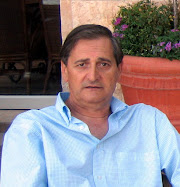
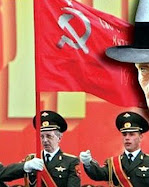




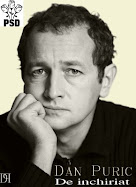





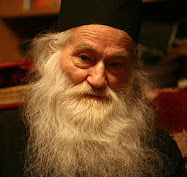


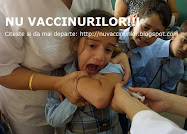



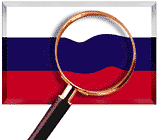

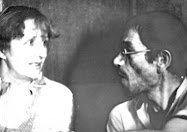






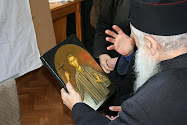
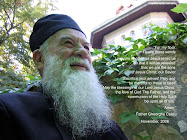


2 comments:
http://ziarero.realitatea.net/1244136698-In_Harghita_s-a_scandat_in_maghiara_Ocupanti_carati-va
http://cluj.time4news.ro/politica/tokes-romanii-sa-invete-maghiara-daca-traiesc-printre-maghiari/
Post a Comment